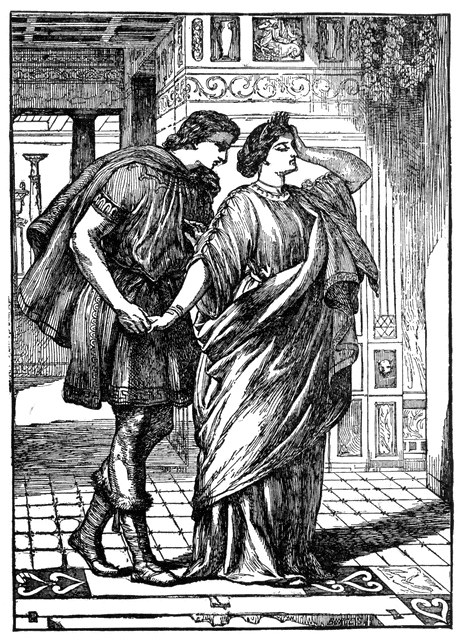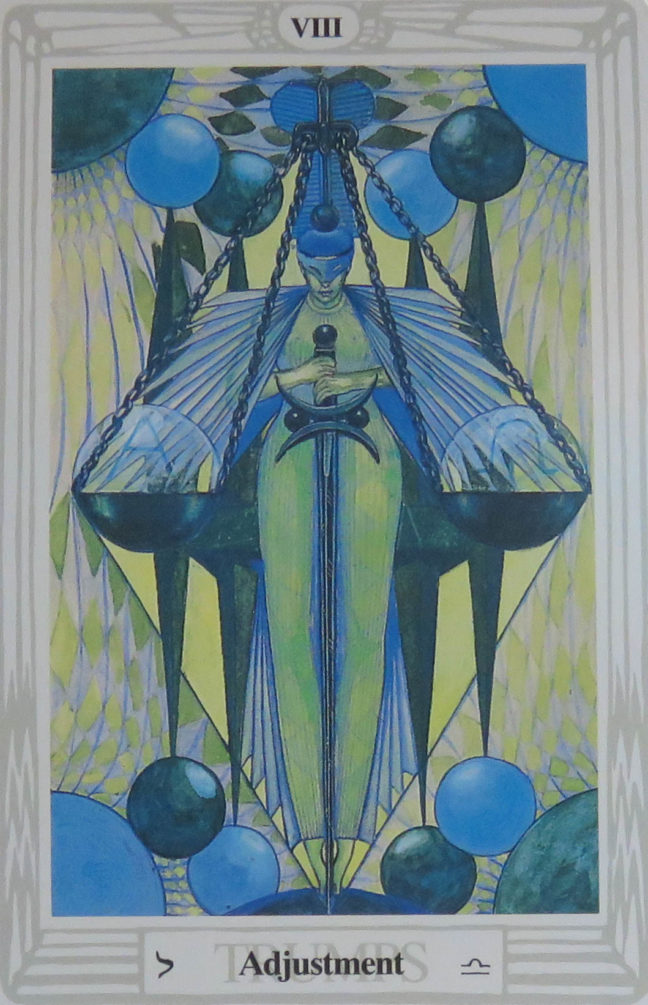Course Correction Without Recrimination
“No plan survives contact with the enemy.” – Helmuth von Moltke the Elder
While the above quote is a paraphrased from the original German, “Kein Operationsplan reicht mit einiger Sicherheit über das erste Zusammentreffen mit der feindlichen Hauptmacht hinaus” (no plan of operations extends with any certainty beyond the first contact with the main hostile force) the sentiment is witty enough, and germane to theater enough, that it might have come from William Shakespeare.
As such, it seems like a fine place to launch into Adjustment in the creative process. I am particularly fond of the idea of “Adjustment” as it is one of the Tarot Trumps from The Book of Thoth that differs in both title and nuance from the traditional attribution “Justice”.
From The Book of Thoth – “This card in the old pack was called Justice. This word has none but a purely human and therefore relative sense; so it is not to be considered as one of the facts of Nature. Nature is not just, according to any theological or ethical idea; but Nature is exact.”
Crowley then goes on to describe the relationship between Venus and Saturn, as they rule and have their exaltation in Libra, which this card symbolizes. He details how the resultant interplay between these two forces manifest as the cause and effect that is understood as Karma, and that we experience as temporal reality.
Sounds pretty fancy. Check out the whole thing.
This is a pretty
lofty concept to apply to art, to be certain, but then all the best
concepts are applied to art, and vice versa. For practical purposes,
this comes down to a simple idea: “We become what we do.”
More
especially, “When we do, we overcome.”
Every effort we put forth in the creative process, in the “Doing”, must by definition come up against the resistance that is inertia. We are shaping matter in accordance with our wills, and that matter would otherwise be at rest. Overcoming physics with the will to create is the very definition of art, and magick. And matter has no internal motivation to be helpful, so we must adjust our efforts in accordance with what is most efficacious in our creative process.
And we will run afoul of all manner of challenges. Fortunately, we have our love for our art to sustain us!

LYSANDER:
Ay me! for aught that I could ever read,
Could ever hear by tale or history,
The course of true love never did run smooth;
…
War, death, or sickness, did lay siege to it,
Making it momentary as a sound,
Swift as a shadow, short as any dream,
Brief as the lightning in the collied night
That, in a spleen, unfolds both heaven and earth,
And ere a man hath power to say ‘Behold!’
The jaws of darkness do devour it up;(150)
So quick bright things come to confusion.
HERMIA: If then true lovers have ever cross’d,
It stands as an edict in destiny.
– A Midsummer Night’s Dream Act 1, scene 1
Or, to quote from Liber Librae
“Thou then who hast trials and troubles, rejoice because of them, for in them is Strength, and by their means is a pathway opened unto that Light.”
In order to overcome these challenges, in order to succeed, we will have to Adjust! And in adjusting, we become stronger, more experienced, and better suited to our next task!
I cannot tell you the troubles you will face on your path, only that they will come. Perhaps you will lose money, or suffer illness. Perhaps someone on cast will move away, or become disenchanted. Perhaps you will win the lottery and decide you have better things to do. (What? It doesn’t all have to suck! Getting something cool can be equally distracting!)
The point is, there will be challenges to overcome, and an attitude of adjustment is crucial to progress. It is here that I find the term Adjustment so much more appropriate than the idea of Justice, as exemplified in older decks. Justice demands that we stop all progress to find resolution. And while certain redress of injury is necessary to the healing process, or culling process, as the case may be, it is often a distraction from the work at hand. As an example, if a cast member moves away due to hardship or family circumstance, this requires no redress of injury, simply a fond farewell, and the search for a suitable replacement can begin. There should be no recrimination in such a circumstance, and to search for “justice” (or for someone or something to blame) is a waste of energy.
I will also say here that there is a certain school of “Wish-craft” that puts forth the proposition that if an action is in accord with your true will, that it will some how manifest without effort or obstacle. This is the most nonsensical notion ever uttered.
“How should it be otherwise, O man, whose life is but a day in Eternity, a drop in the Ocean of time; how, were thy trials not many, coulds’t thou purge thy soul from the dross of earth?
Is it but now that the Higher Life is beset with dangers and difficulties; hath it not ever been so with the Sages and Hierophants of the past? They have been persecuted and reviled, they have been tormented of men; yet through this also has their Glory increased.”
Liber Librae
I often remind those who adhere to the “easy-road” philosophy of Thelema that many of our Gnostic Saints died in poverty and affliction. Their devotion to the exploration of their true will did not necessarily lead to riches or reward in any material sense, because the reward is in the “Doing”.
And lastly, I leave you this thought on the theater, which saw me through many a trial.
